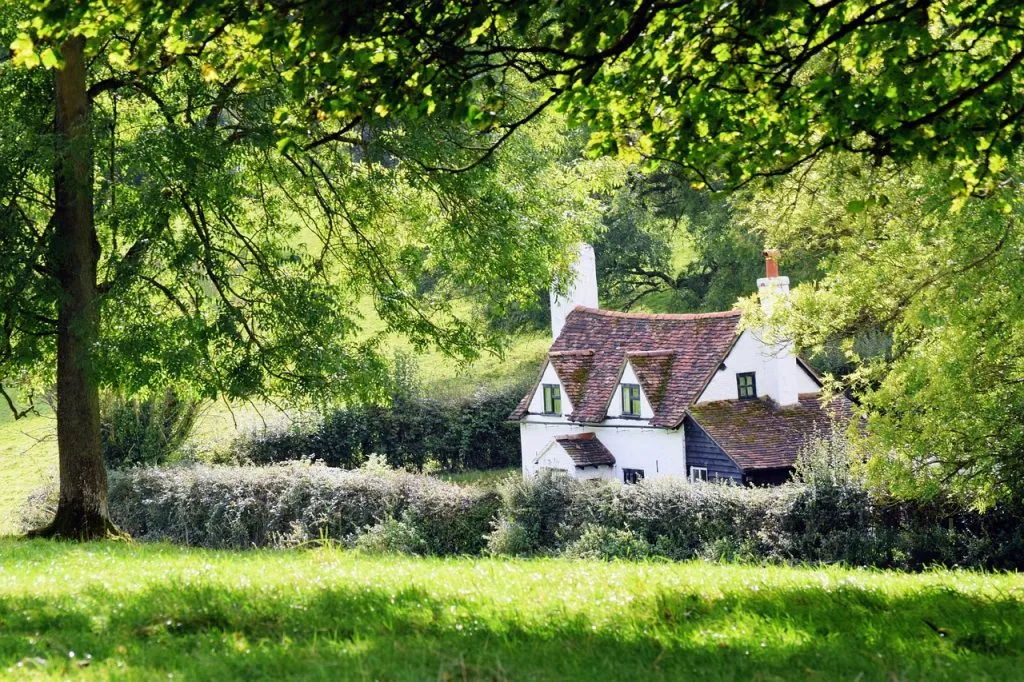Top 10 Tips for Buying a Holiday Let Property

Are you thinking of buying a holiday let property?
If so, you’re not alone. Ever since the pandemic, there’s been a renewed interest and excitement in discovering the UK. As travel abroad gets more hectic and staying at home has so much to offer, the holiday let market is booming, and it’s a great time to start looking to invest in a property for renting to guests on a short-stay basis.
But how do you know which one is right for you?
Here are the top 10 tips for choosing the right holiday let property:
1: Who Will Come?
Who will come and stay?
Before you do anything else, think about what kind of person you’d like to attract to your holiday let.
Walkers? Theatre goers? Families? Couples? Adventure seekers?
Create an ‘ideal visitor’. Make notes on their age and the kinds of things they might be looking for during their stay. For example, hikers want somewhere to put their muddy boots… or even a spare pair of wellingtons just in case.
Once you know your target market, you can start to narrow down your search to properties in the kind of desirable locations that will suit that specific type of guest.
For example, if you’re targeting families, you might want to look for a property near a beach or amusement park.
Romantic couples? They want peace, privacy, and good restaurants. Not forgetting something beautiful to visit nearby like a waterfall or forgotten castle ruin.
2: Accessibility.
How will they get there?
How easy is it for guests to get to your property?
When you’re looking around at different properties, check to see that it’s well-connected by road, rail, or air. Good transport links make it easier for guests to reach your property, which can lead to higher occupancy rates.
3: What will they do?
Research any nearby attractions, walking routes, shops, cafes, and amenities that your guests will be looking for. If you can, visit them yourself so you can create a meaningful welcome pack with links and maps to help people get to places.
Whatever they do while they’re at your holiday let, guests will spend a lot of time out and about. Good knowledge of what makes people come and how they’ll get to places will make your property more appealing and help you attract repeat bookings.

4: When will they come?
Research local demand and seasonality.
How much demand is there for holiday rentals in the area?
And how does demand vary throughout the year? You can find the answers to all these questions by looking online and by getting to know local businesses in the area you’re thinking about.
Talk to local letting agents. They’re a source of in-depth analysis of visitor behaviour. Make sure you find out if the market is over-saturated. There’s no point into buying in a seaside town where the competition is too high. You might find there’s a nice little village a few miles away, that’s also near a popular national park, where there’s less competition and the property is cheaper.
And explore how visitor traffic varies throughout the year. Summer is high season in most places, but there can be great reasons why people want to come at other times of the year. For example, if there’s an Autumn fair, Spring festival, or Christmas market visitors love – you may find the dips and troughs can be tracked easily and there’s regular interest in various seasons.
Gather this information together. It all helps to build a picture and from that, you make informed decisions about where to buy, and what times of year to promote your property the most, as well as how much to charge month by month.
5: Will they like it?
When you’ve decided on the location and you’re checking out properties, look for places in good condition.
If you find somewhere perfect that needs work, have you got the funds for a refurbishment?
Guests want to stay in a clean, comfortable home-from-home, with all the amenities they need.
Your holiday let needs to be well-maintained, clean, comfortable, and offering all the essential services, such as utilities, internet, and parking.
Think about your ideal guest… what do they want? What will they need?
The size of the property. How many guests do you want to accommodate? If you’re planning on renting to families, you’ll need a larger property.
The number of bedrooms and bathrooms. Again, this will depend on the size of your target market. If you’re targeting families, you’ll need at least two bedrooms and two bathrooms.
The amenities. What amenities are important to your target market? If you’re targeting families, you might need a play area in the garden, a cot, and a barbecue.
The décor. Make sure the décor of the property appeals to your target market. If you’re targeting families, you’ll want a bright and cheerful décor. Romantic couples like soft neutrals and low lighting.
Above all, don’t forget, you’ll have to fully furnish the property according to the visitor profile you’re expecting.

6: What are the rules?
The rules around planning permissions and other regulations regarding holiday let properties, is an ever-evolving environment.
So, take time to explore and understand the legal and regulatory requirements.
It may help to talk your findings through with a solicitor or other professional with an expertise in this aspect of the property market. If you need to apply for planning permission, make sure you get the application in and when it’s accepted – stick to the rules!
7: Can I get a mortgage?
A big part of getting a mortgage on a holiday property is your projected, potential rental income.
Letting agents in the relevant area can give you an estimation of how much you can expect to earn from your holiday let.
Getting a mortgage for a holiday let is a specialist financial product. Lenders want to see the property is in a good location with the possibility for resale as a residential or holiday let, they need to know there’s demand for this type of project, and how much seasonality affects your projections.
Lenders will look at your situation as well, and they’ll need a good deposit (typically a bit more than for a residential property) of around 20-25%. If you’ve got that, some kind of income, and a clean credit rating, have a chat with one of our advisors to start the process.
8: Who will manage it?
If you don’t want to manage your holiday let yourself, you can hire a property management company.
They can handle everything from marketing and booking guests, maintenance, and gardening, to cleaning the property. You need to find a company whose services cover the sort of property you’re running.
9: What will happen in the future?
Where do you see the property market in the next 5-10 years?
If you think the value of the property is likely to increase, it could be a good investment.
Perhaps you’re thinking about retiring in the location or the property itself. If so, your own regular visits (owners are allowed to stay in their holiday let for a set number of days a year if they’re on a mortgage), will help you get to know and become part of, the local community.
10: Be proactive.
The best properties tend to go quickly, so it’s important to be proactive. Knowing the location, visitor profile, and seasonal projected rental income is a great start… And once you’ve decided where you want to buy, make sure you keep an eye on new listings as they come on the market.
This will give you more chances of finding the right property and negotiating a good price.
Negotiate.
The asking price is just a starting point, so negotiate with the seller to get a better price.
Get everything in writing. Once you’ve agreed on a price, make sure to get everything in writing. This includes the terms of the sale, such as the closing date and the amount of the down payment.
Do your due diligence.
Before you buy a holiday let property, it’s important to do your due diligence.
This includes:
Getting a survey and making sure the condition of the property is good before you start letting it out to visitors.
Applying for planning permission if you need it.
Checking the local rules and regulations around holiday lets.
Insurance. Make sure you have the necessary insurance to protect your investment.
And don’t forget…
It’s a long-term investment. Don’t expect to make a quick profit from your holiday let. It takes time to build a successful business.
It’s a lot of work. You’ll need to be prepared to put in the time and effort to manage your holiday let. This includes cleaning, maintenance, and booking guests.
It’s not without risks. There are always risks involved in any investment, and the holiday let market is no exception. You could experience problems with guests, damage to the property, or changes in the law.
If you’re willing to put in the work and accept the risks, buying a holiday let property can be a great way to generate income and enjoy a passive investment. But it’s important to do your research and make sure you’re choosing the right property for your needs.

